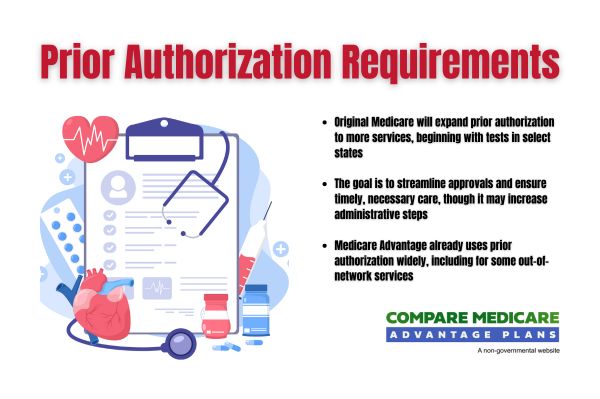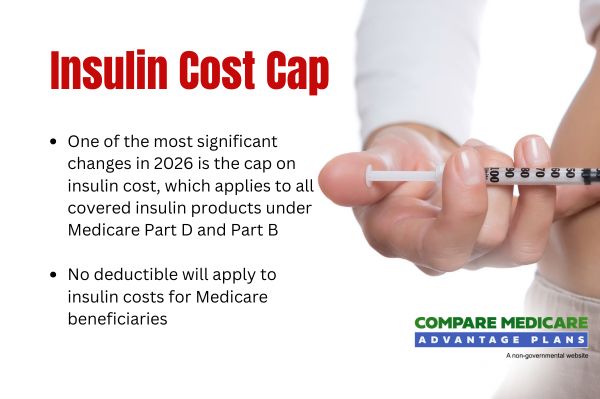Key Changes to Medicare Advantage Plans in 2026

The year 2026 is poised to bring notable changes to Medicare Advantage plans:
- Enrollment in Medicare Advantage is projected to decline slightly to 34 million.
- Over 99% of Medicare beneficiaries will still have access to at least one Medicare Advantage plan.
- The total plan enrollment in available Medicare Advantage plans is expected to decrease marginally from 5,633 in 2025 to about 5,600 in 2026.
These shifts are driven by several factors, including changes in rules, other costs, and benefits. Beneficiaries should now pay closer attention when reviewing their plan options and plan choices. Given the evolving landscape, make sure your plan aligns with your needs and budget. Keep an eye out for modifications in benefits and costs that could affect your healthcare choices.
Updates to Prescription Drug Coverage
Prescription drug coverage is undergoing significant changes in 2026, largely influenced by the Inflation Reduction Act. This legislation allows Medicare to negotiate drug prices for certain high-cost drugs, making medications more affordable for seniors. Consequently, the average total premium for Medicare Advantage plans with Medicare prescription drug coverage is expected to decrease from $13.32 to $11.50 in 2026. This decrease in premiums is a welcome relief for many Medicare enrollees who rely on these plans for their medication needs. Additionally, the Medicare prescription drug coverage aspect of these plans will also see improvements.
Another noteworthy change is the increase in Medicare Part D’s catastrophic threshold from $2,000 to $2,100. While the threshold is slightly higher, it still provides significant protection against high drug costs, especially for low-income seniors. Additionally, the projected average total premium for standalone Medicare Part D plans is expected to drop from $38.31 in 2025 to $34.50 in 2026. These adjustments make it crucial to annually review and compare different plans to secure the best coverage at the lowest cost.
Furthermore, the Centers for Medicare & Medicaid Services (CMS) will actively reject standalone Part D plan bids that involve significant cost increases or reduced benefits. This proactive approach aims to keep drug plans affordable for beneficiaries.
Given these upcoming changes, staying informed and carefully evaluating your prescription drug coverage options is vital.
Adjustments to Medicare Costs and Premiums
In 2026, Medicare costs and medicare premiums are set to undergo notable adjustments. The average premiums for Medicare Advantage plans are expected to decrease from $16.40 to $14.00. This reduction is part of a broader effort to make healthcare more affordable for Medicare enrollees. However, many Medicare Advantage plans may reduce benefits or increase costs in other areas, so beneficiaries should evaluate their options carefully.
The projected average total premium for standalone Part D plans will also decrease from $38.31 in 2025 to $34.50 in 2026. These changes emphasize the need to stay informed about your plan’s costs and benefits, as your plan depends on ensuring that your healthcare coverage remains both comprehensive and affordable.
Enhancements in Supplemental Benefits
Beginning in 2026, Medicare Advantage plans are likely to offer fewer supplemental benefits, including special supplemental benefits, with stricter guidelines on what can be included. This trend is driven by providers aiming to cut costs and manage expenses more effectively. As a result, many plans are reducing benefits such as dental and transportation services, which have been significant selling points for Medicare Advantage plans.
Despite these reductions, the average monthly premium for Medicare Advantage plans is projected to decrease from $16.40 in 2025 to $14.00 in 2026. While the lower premiums may seem attractive, it’s crucial to weigh them against the potential loss of valuable supplemental benefits. These benefits have significantly influenced member choices, and their reduction could affect the overall value of the plans.
Prior Authorization Requirements

The expansion of pre authorization requirements in Original Medicare is a significant change coming in 2026. Historically prevalent in Medicare Advantage plans, these requirements are now being extended to traditional Medicare as part of a broader shift towards stricter approval processes. This new model will mandate pre authorization for services such as electrical nerve stimulator implants and knee arthroscopy, which were previously exempt.
A pilot program will be launched in six states to implement these new requirements, including:
- New Jersey
- Ohio
- Oklahoma
- Texas
- Arizona
- Washington
While emergency and inpatient services remain excluded from prior authorization, the inclusion of additional services highlights the need for beneficiaries to stay informed about the changes.
Knowing these requirements can help you navigate the health care system more effectively and avoid a reasonable expectation of unexpected delays in receiving care.
Insulin Cost Caps

Starting in 2026, Medicare beneficiaries will benefit from a price cap on insulin, making it more affordable for those who rely on this essential medication. The cost-sharing for insulin will be determined as the lower of:
- $35
- 25% of the maximum fair price established
- 25% of the negotiated price. This cap ensures that insulin remains accessible without imposing a significant financial burden on beneficiaries.
Additionally, insulin coverage under Medicare will be accessible without needing to meet a deductible. The maximum monthly payment for insulin costs will be set at $35 or less, providing much-needed relief for those managing diabetes.
These changes highlight the need to stay informed about your prescription drug coverage and utilize the new cost caps to manage your medical costs effectively.













